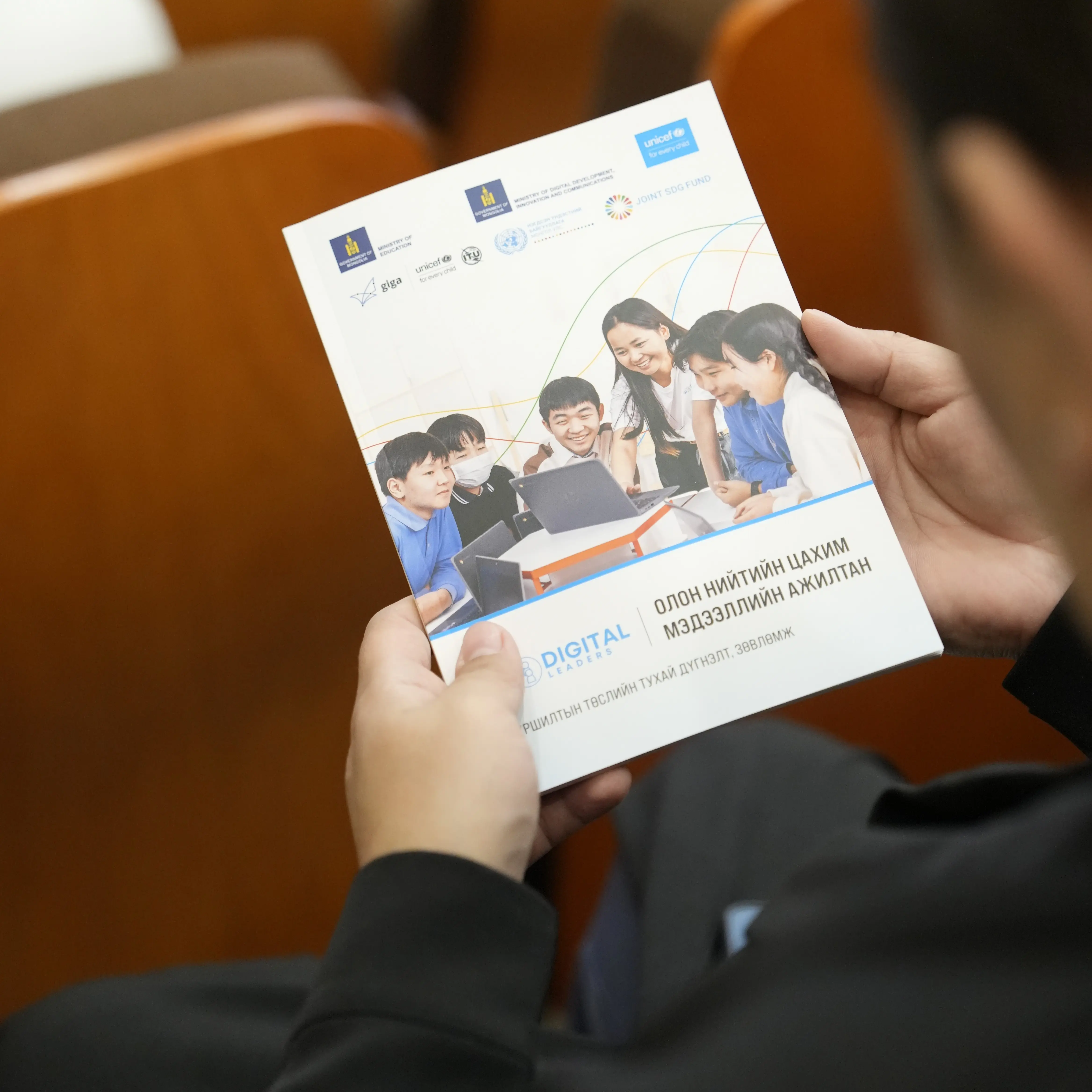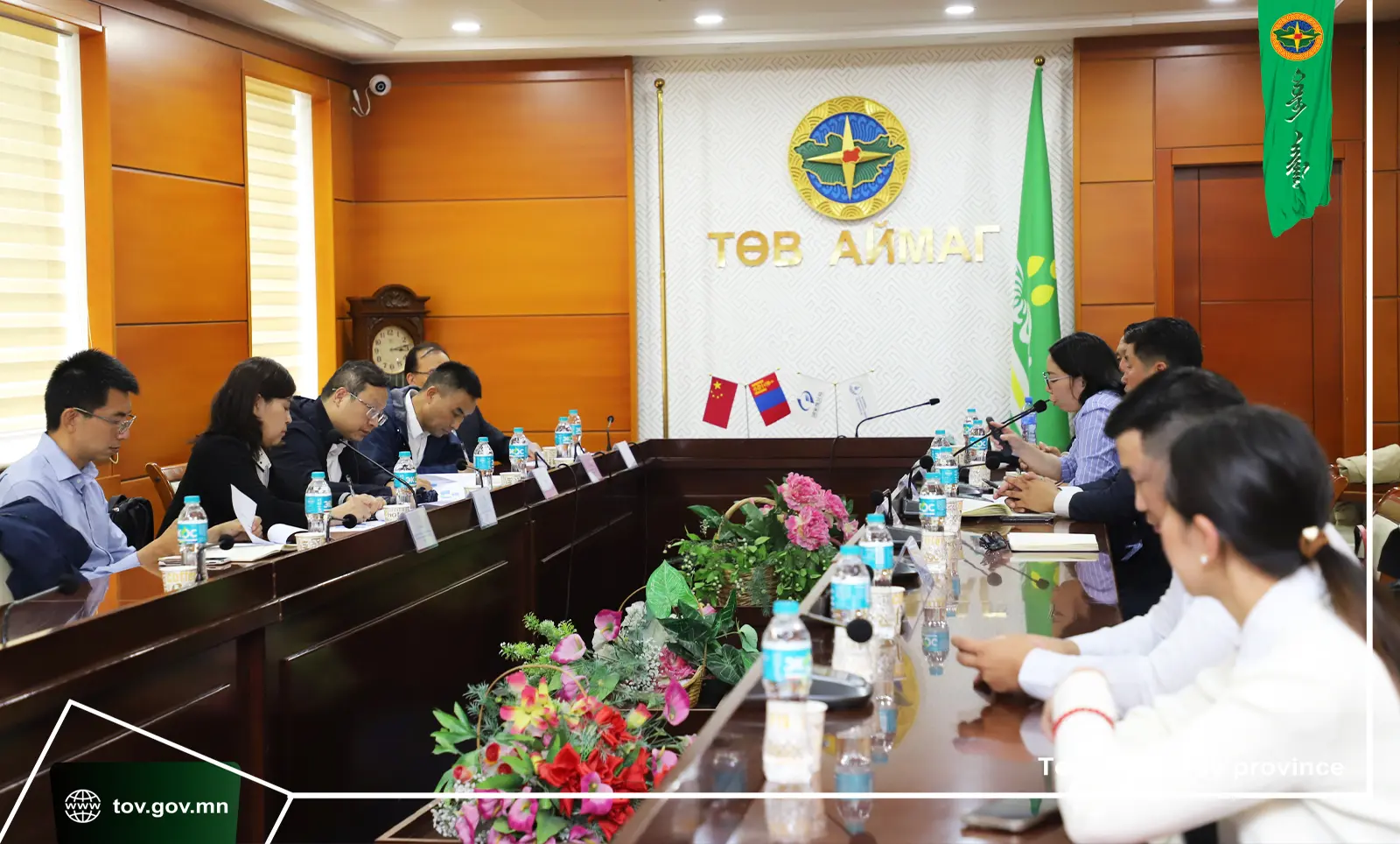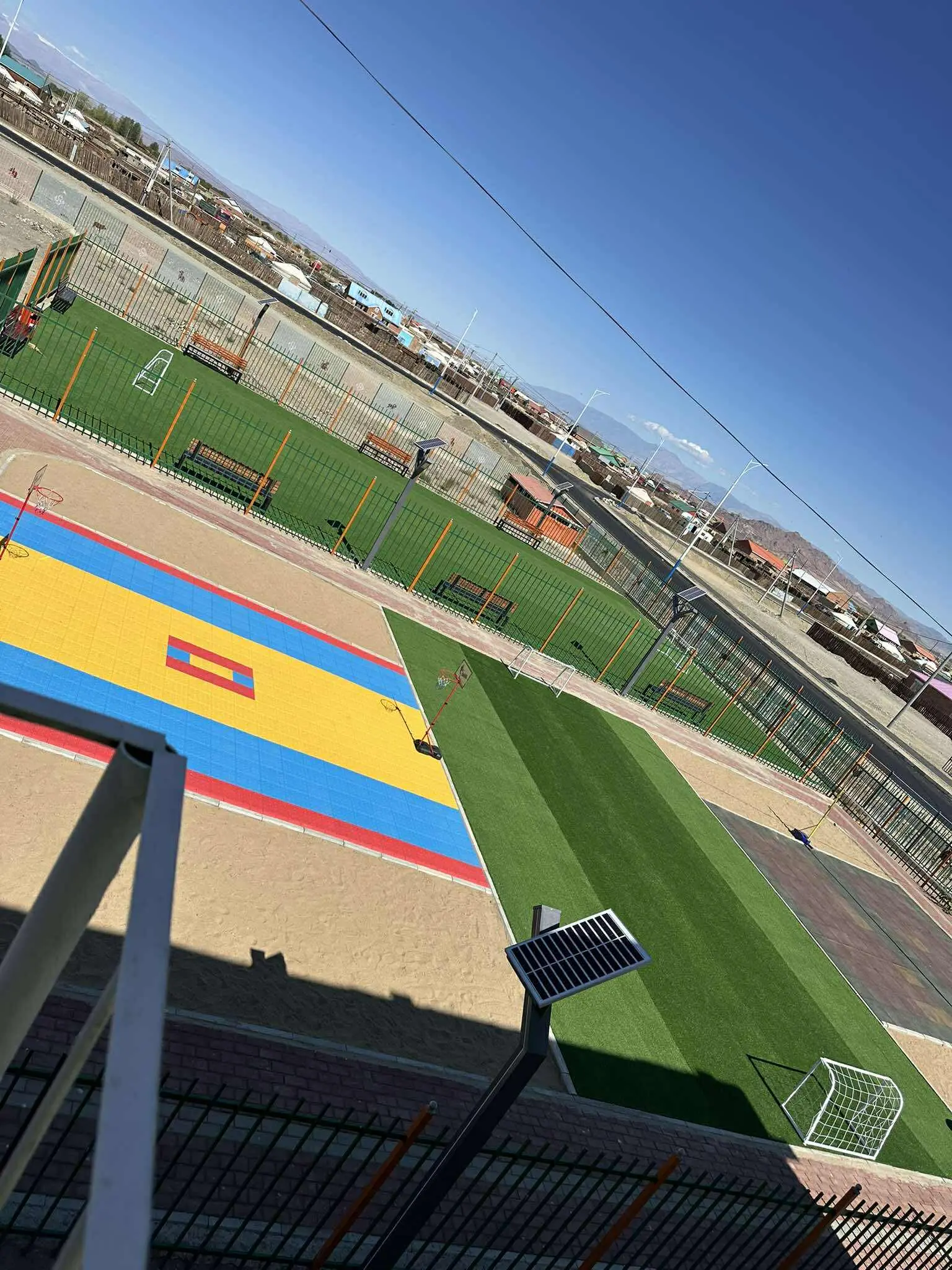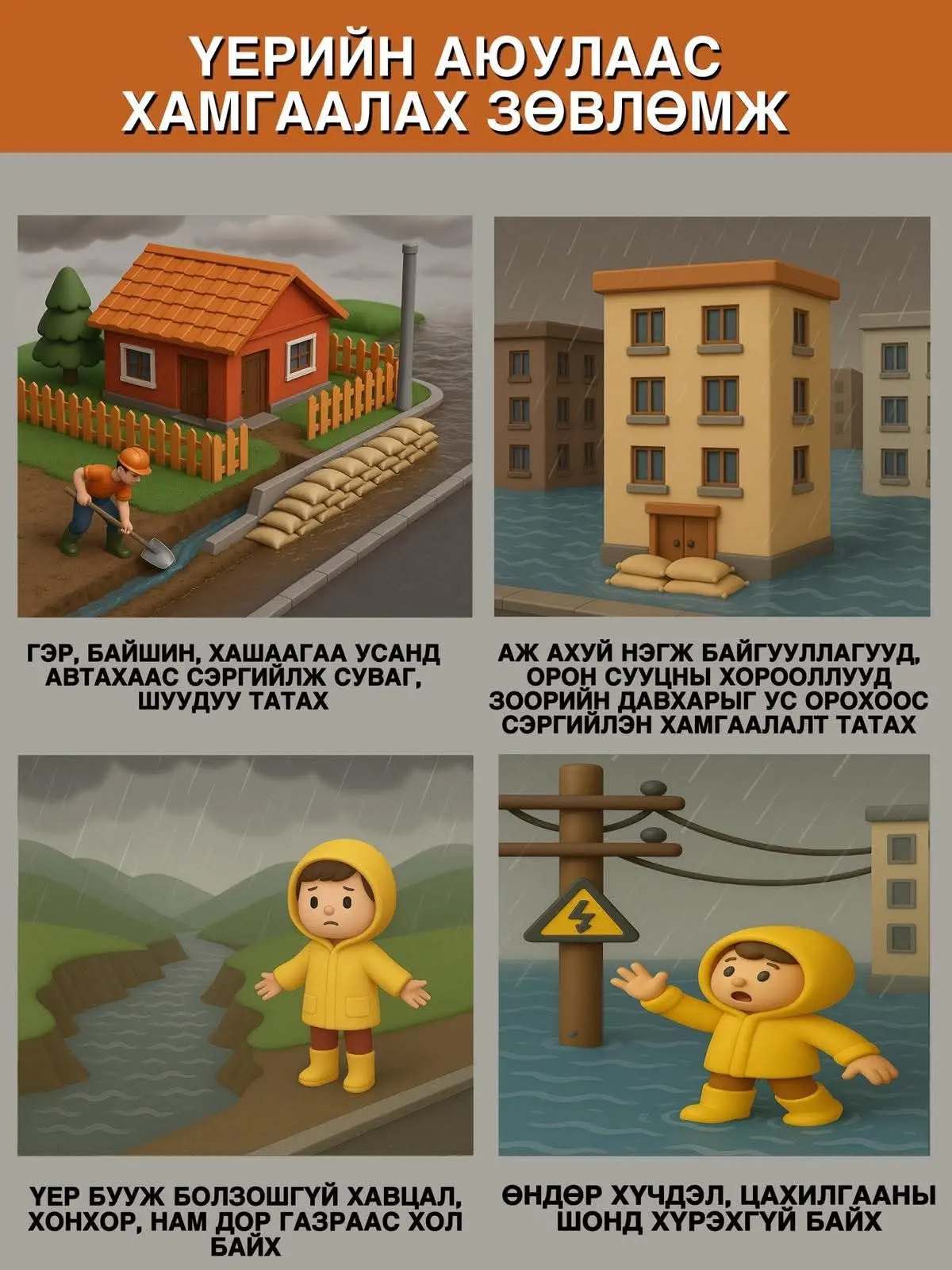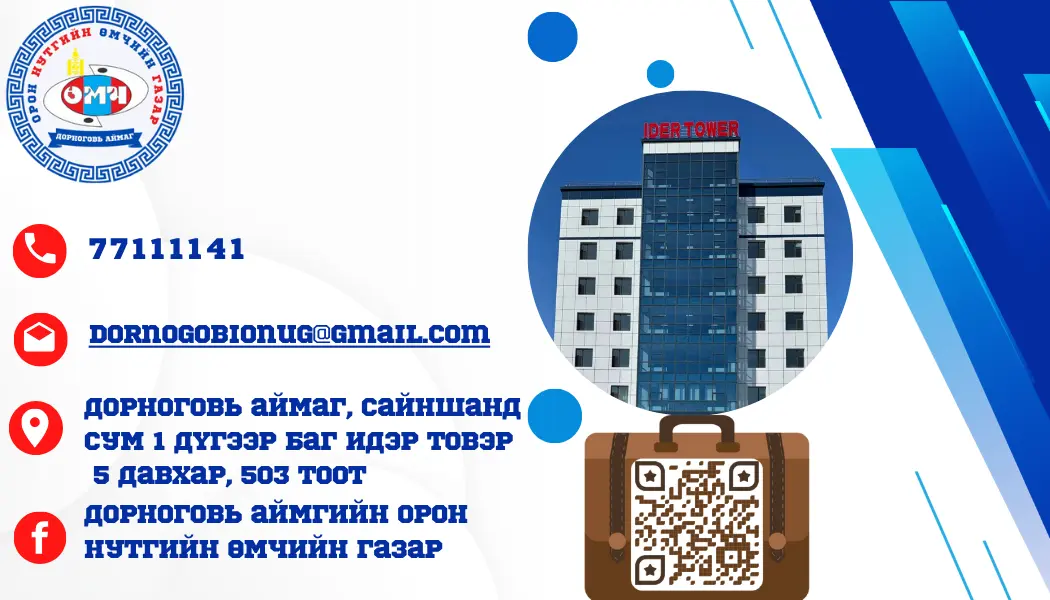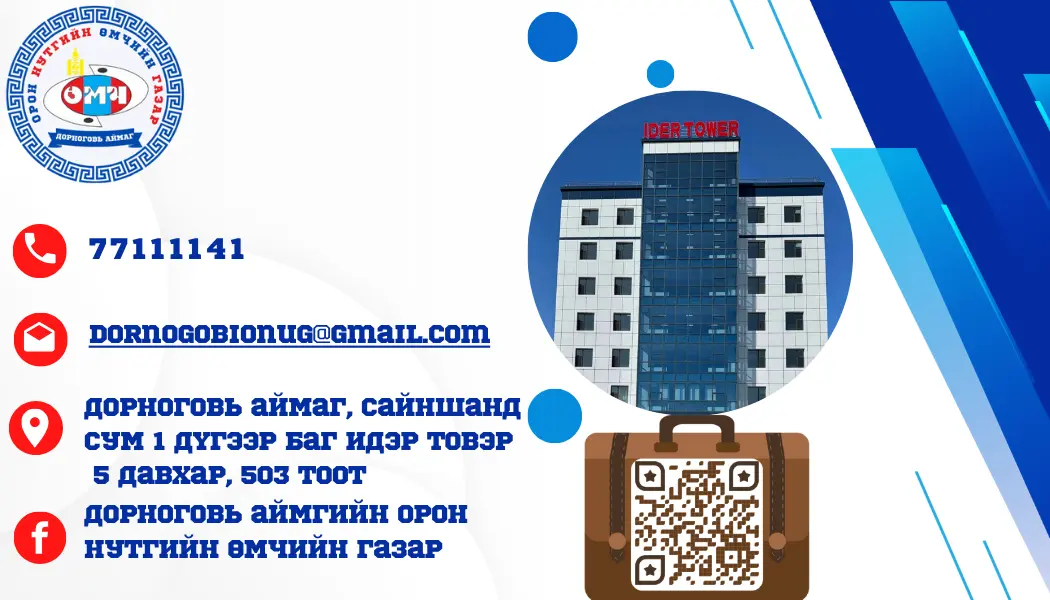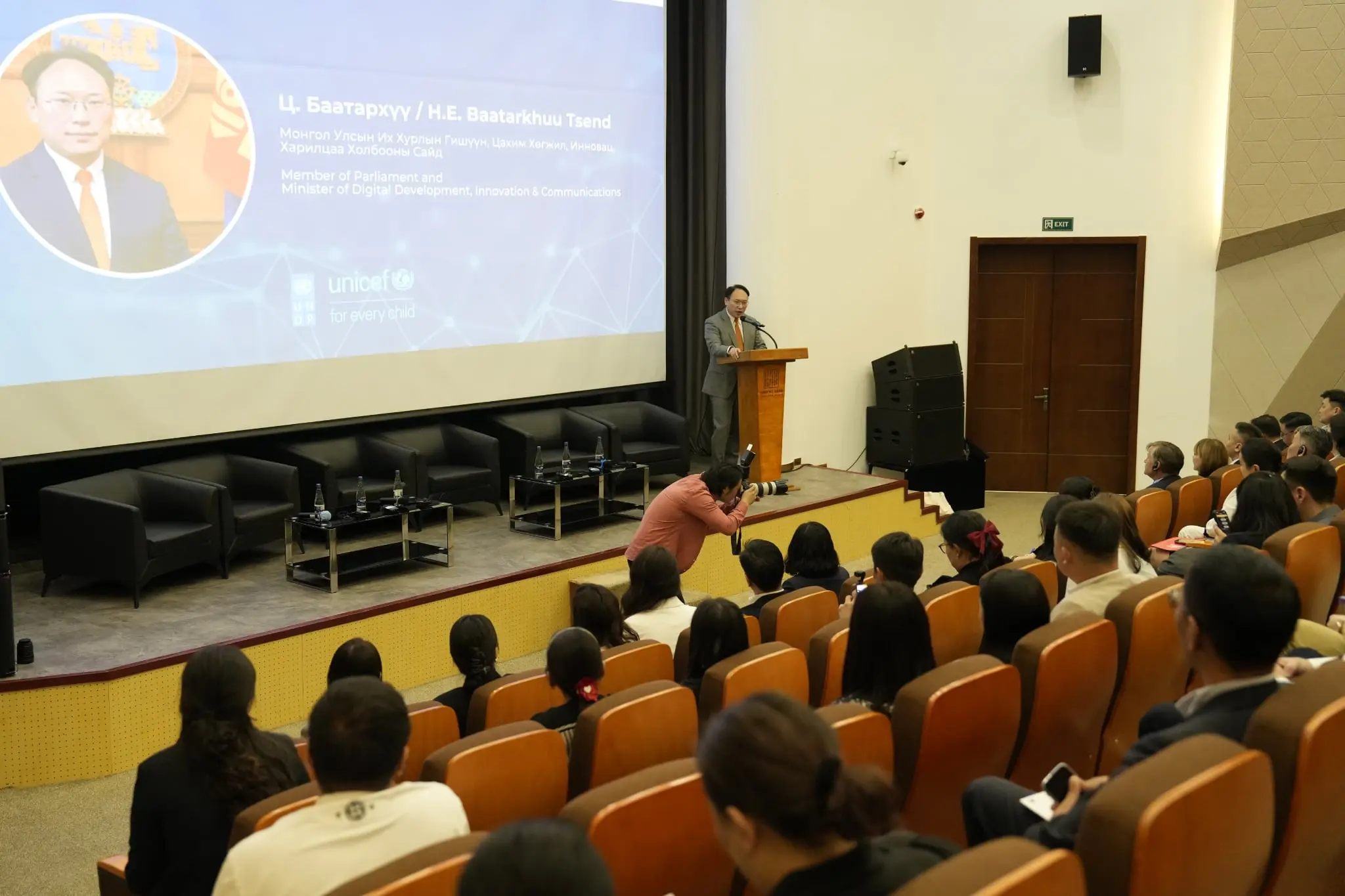
The advancement of technology has become an integral part of our lives today, addressing numerous social and economic challenges. However, disparities in citizens' digital skills and the use of digital devices have created a digital divide, or "digital access inequality."
According to a 2021 sample survey on the state of information and communication technology (ICT) equipment and service usage in Mongolian households, only 43.8% of citizens possess digital skills, highlighting the urgent need for Mongolia to focus on improving digital literacy.
To address this, the Ministry of Digital Development, Innovation, and Communications, in collaboration with the United Nations, implemented the "Digital Empowerment for Mongolian Society and Citizens" (DEMOSC) project over the past year. Through mobile HURDAN units and digital training centers, the project has provided over 5,000 citizens with access to and benefits from the E-Mongolia platform, while enhancing the digital skills of more than 3,200 citizens and public servants.
Additionally, with the support of local administrations, a pilot HURDAN mobile unit and digital training center were established in Darkhan-Uul Province, setting a replicable model for other provinces while ensuring local participation.
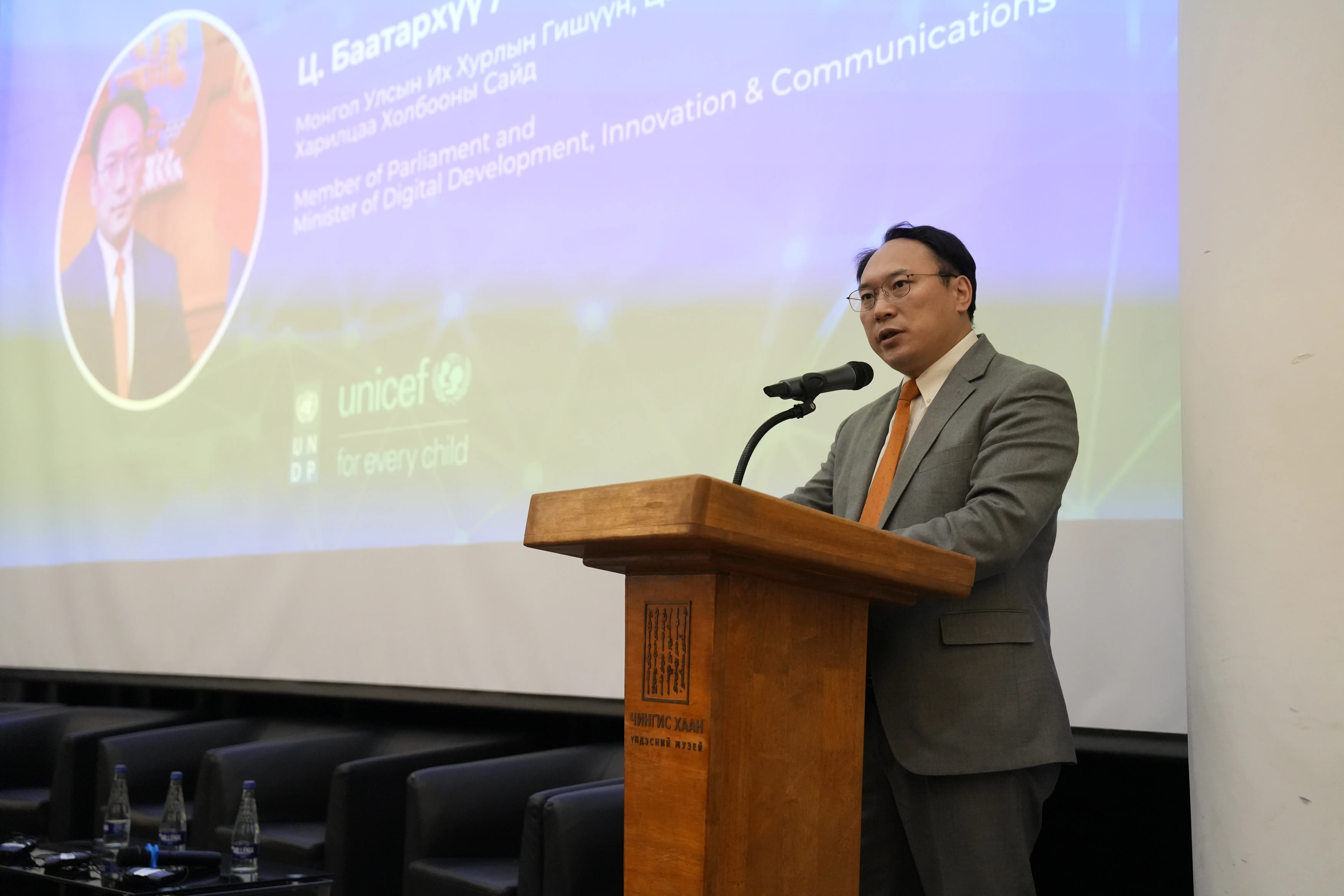
In his opening remarks at the event, Acting Minister of Digital Development, Innovation, and Communications Baatarkhuu Tsend stated, "Digital transformation is Mongolia's gateway to the world. Our Parliament and Government are working toward making Mongolia a digital powerhouse, creating a digital corridor connecting Central Asia and Asia with Europe, akin to a modern Silk Road.
However, three significant challenges lie ahead. First, we need to develop digital infrastructure with public-private partnerships. Mongolia currently has 52,000 km of fiber optic cables, but there is a significant need to expand mobile networks in rural areas. We must collaborate with the UN and other international organizations to address this. In 2025–2026, Mongolia is working with China to increase internet capacity in all soums tenfold, ensuring that rural citizens have access to information on par with those in the capital. We have also expanded network coverage to 139 bag (sub-districts) in 2025–2026. Second, achieving balanced digital literacy among citizens is a pressing issue, alongside the need to develop human resources. In a vast country like Mongolia, where urban residents access information faster than those in rural areas, the DEMOSC project plays a critical role in bridging this gap and enhancing digital skills. The project has empowered citizens from urban ger districts to remote soums, improving their digital knowledge and access to essential services while setting a strong example."
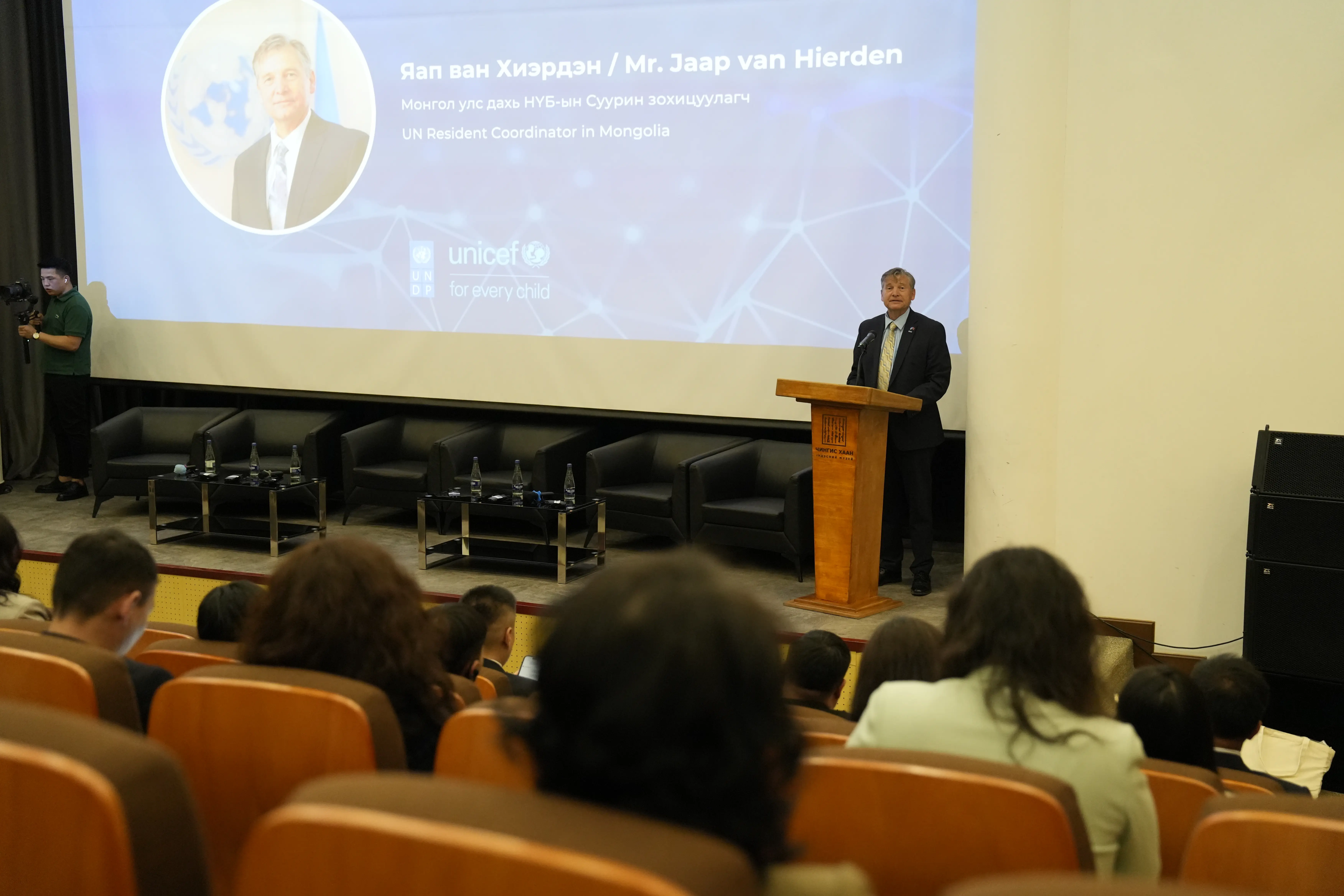
UN Resident Coordinator Jaap van Hierden remarked, "This joint program underscores that digital access is not just a matter of capacity but a critical social and economic necessity. Through close collaboration, we have created a robust model to support inclusive digital development."
UNDP Resident Representative Matilda Dimovska emphasized, "Inclusive digital transformation can be a powerful lever for social equity. Through community participation and gender-sensitive approaches, this program has successfully laid the foundation for accessible digital transformation."
UNICEF Resident Representative Evariste Kouassi-Komlan added, "The future of Mongolia's digital progress lies with its children and youth. Through school-based digital skills initiatives, we are building resilience and capacity in local communities, creating a safe and healthy digital environment for every child to thrive."
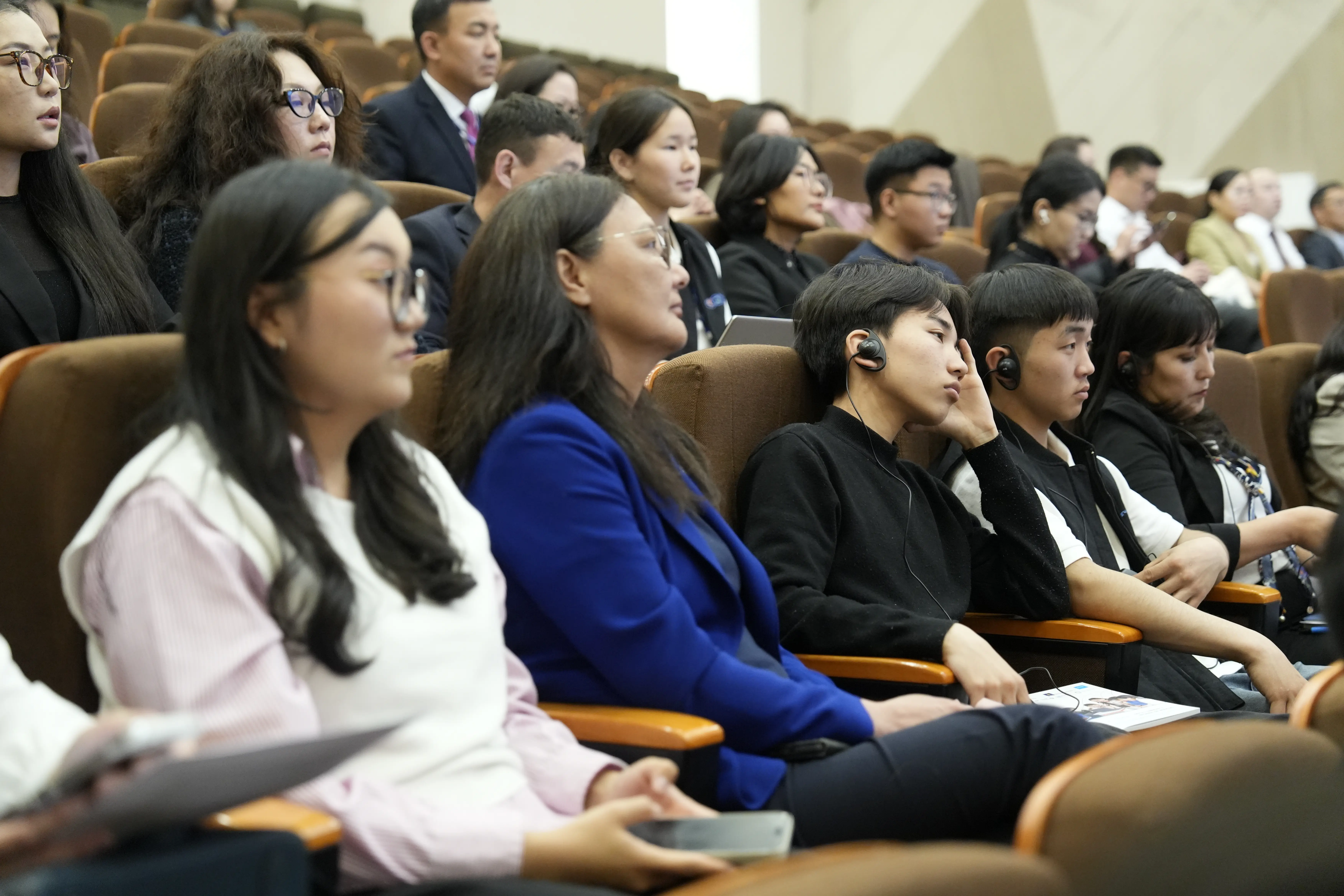
During the closing ceremony of the DEMOSC project, themed "Let's Build a Digital Nation Together," the results, achievements, and key lessons were presented. The project developed training modules to enhance digital literacy, supported the creation of standard operating procedures for mobile services, and strengthened institutional capacity by improving monitoring systems. Local schools were transformed into digital literacy hubs, and over 70 trainers were prepared to support students and parents in safely and effectively using e-government services.
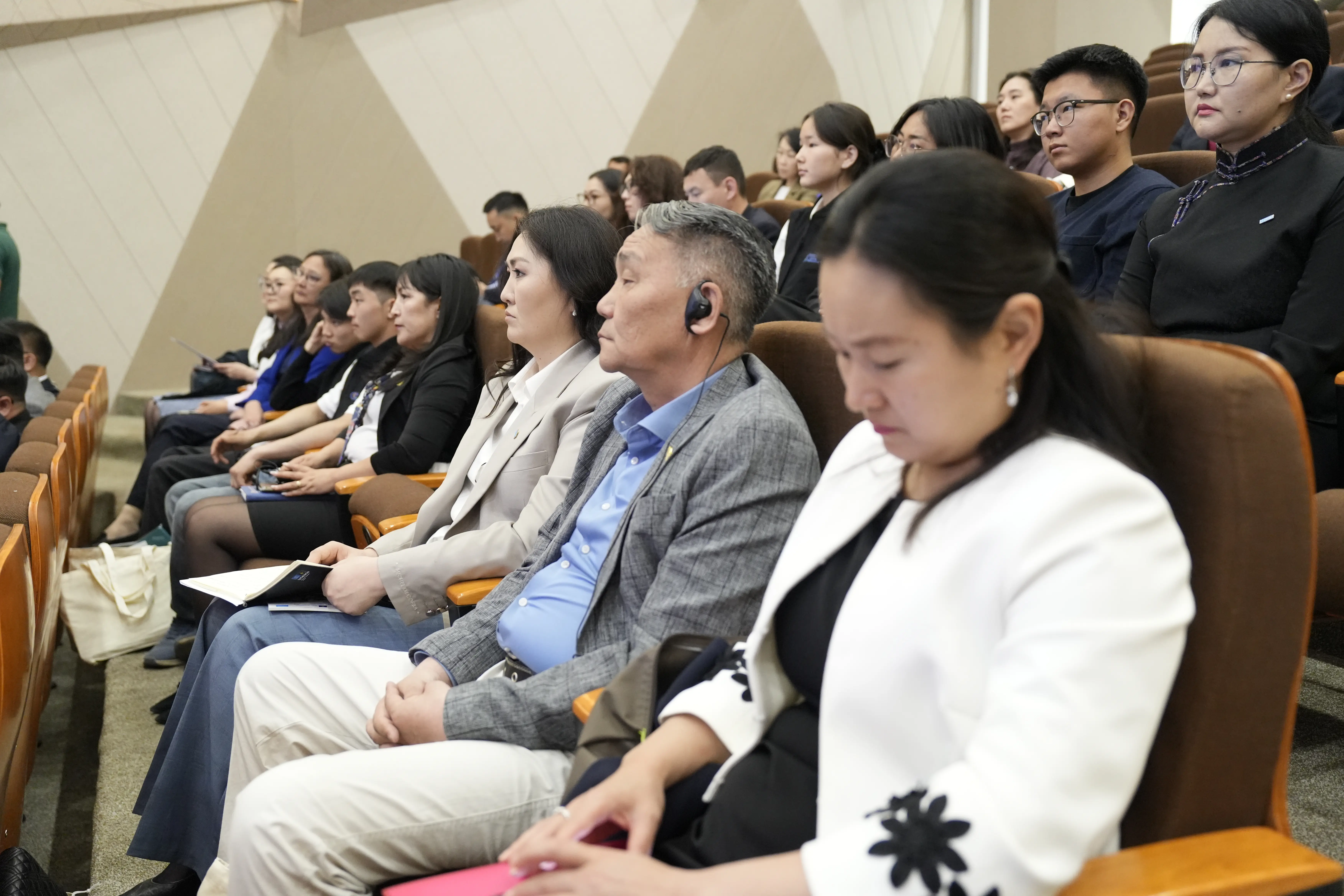
A Community Digital Information Workers (CDIW) network was established, improving the digital literacy of over 10,000 citizens and enhancing internet reliability in schools through monitoring systems. Stakeholders expressed their commitment to scaling up the program's impact, replicating best practices nationwide, and mobilizing resources to strengthen collaboration in support of Mongolia's "Digital Nation" initiative.
